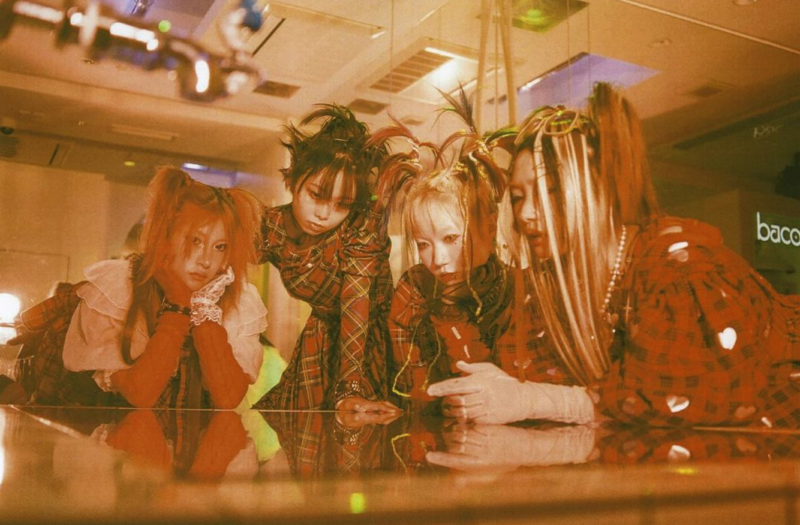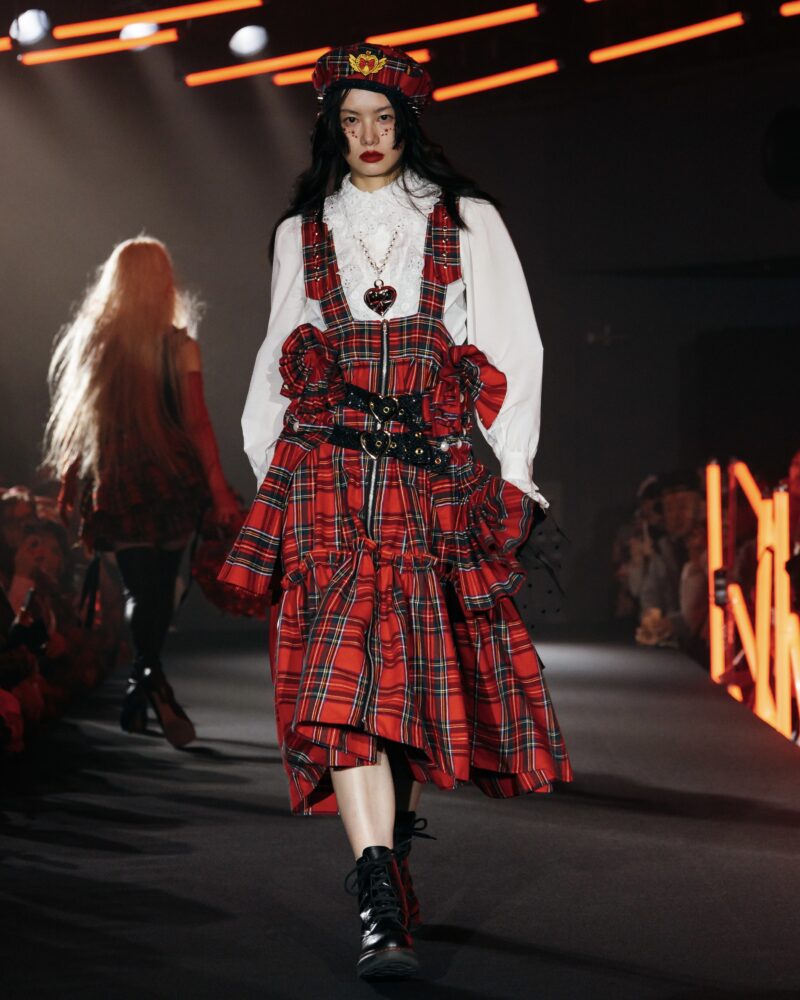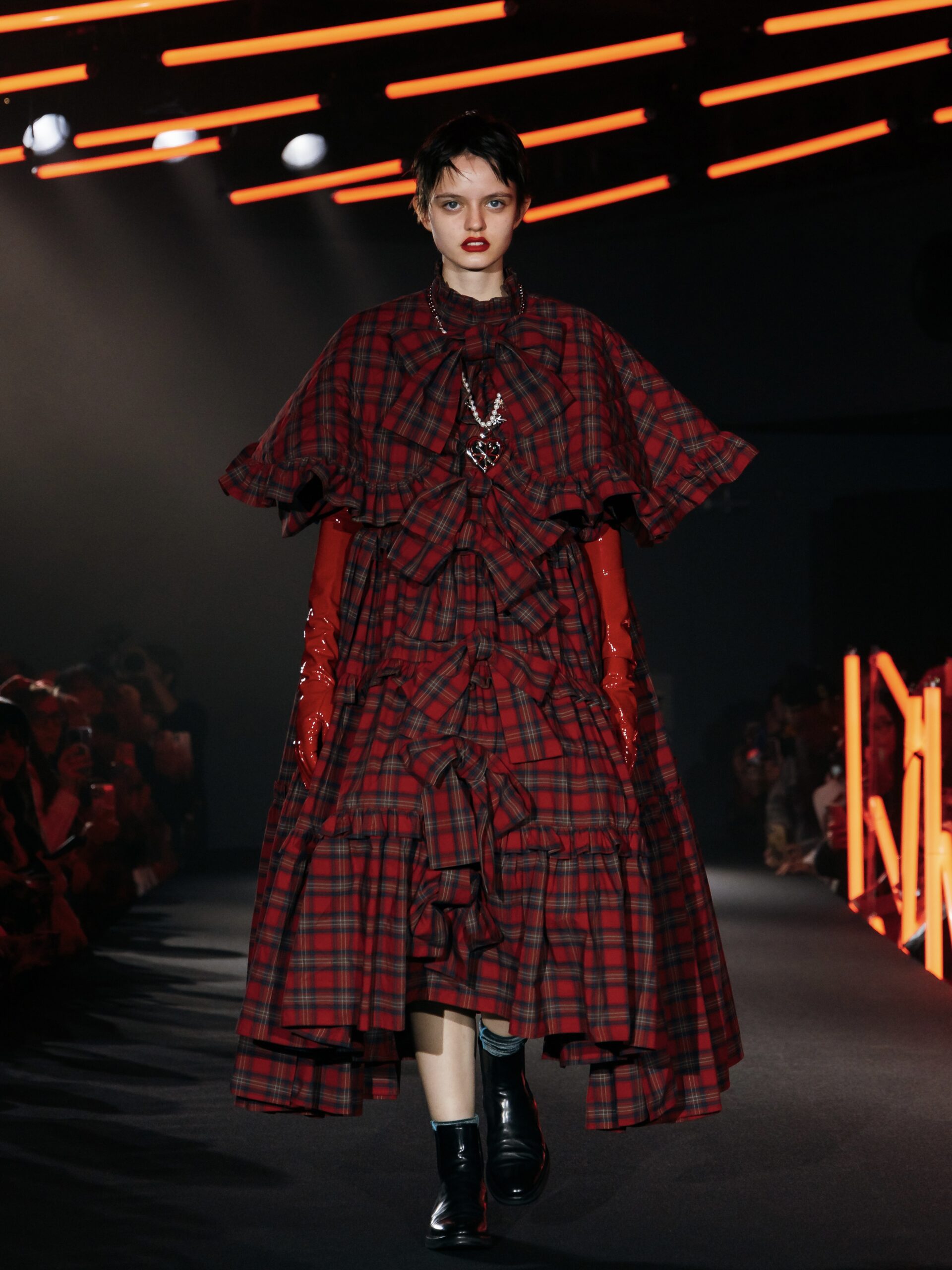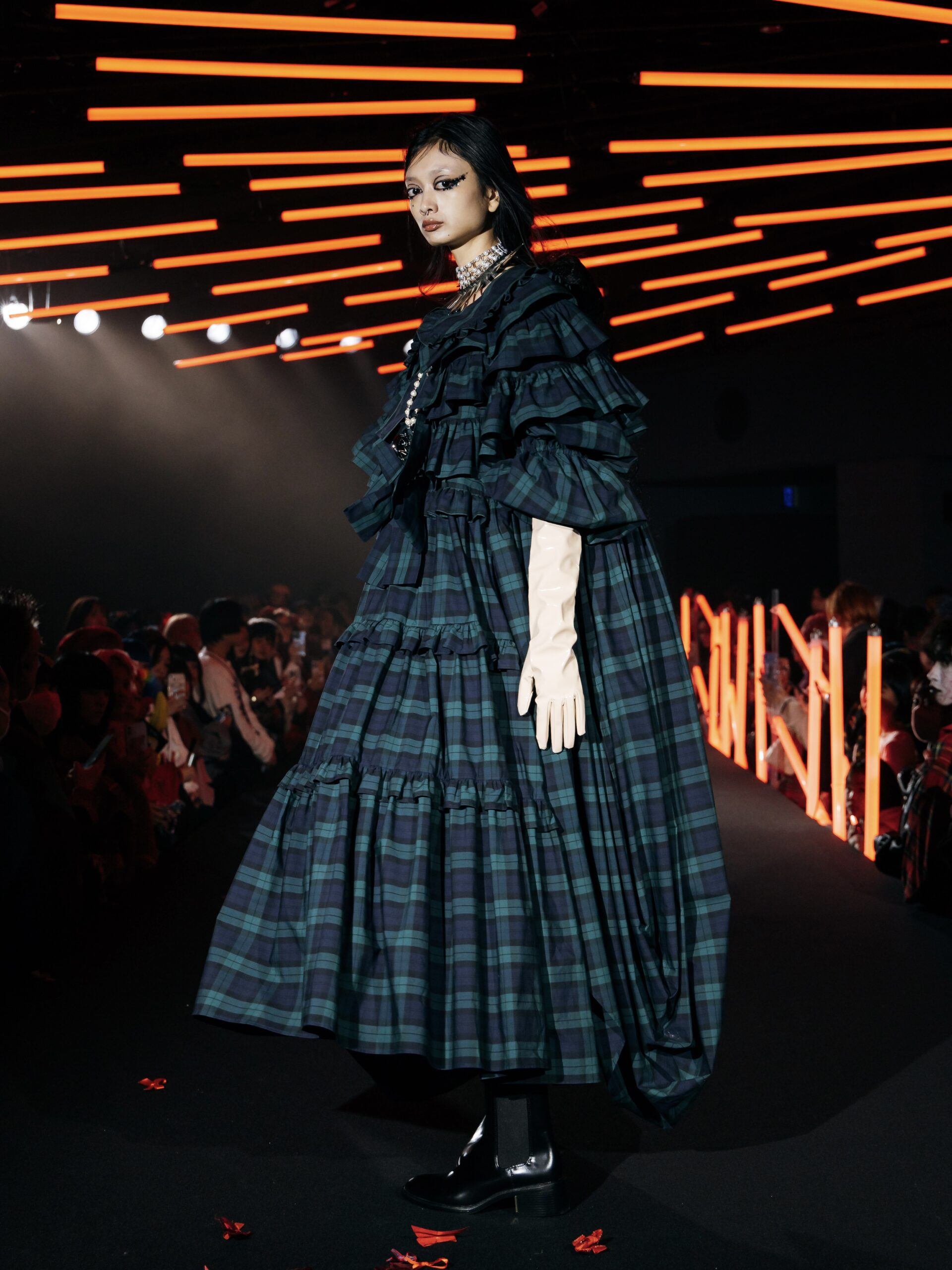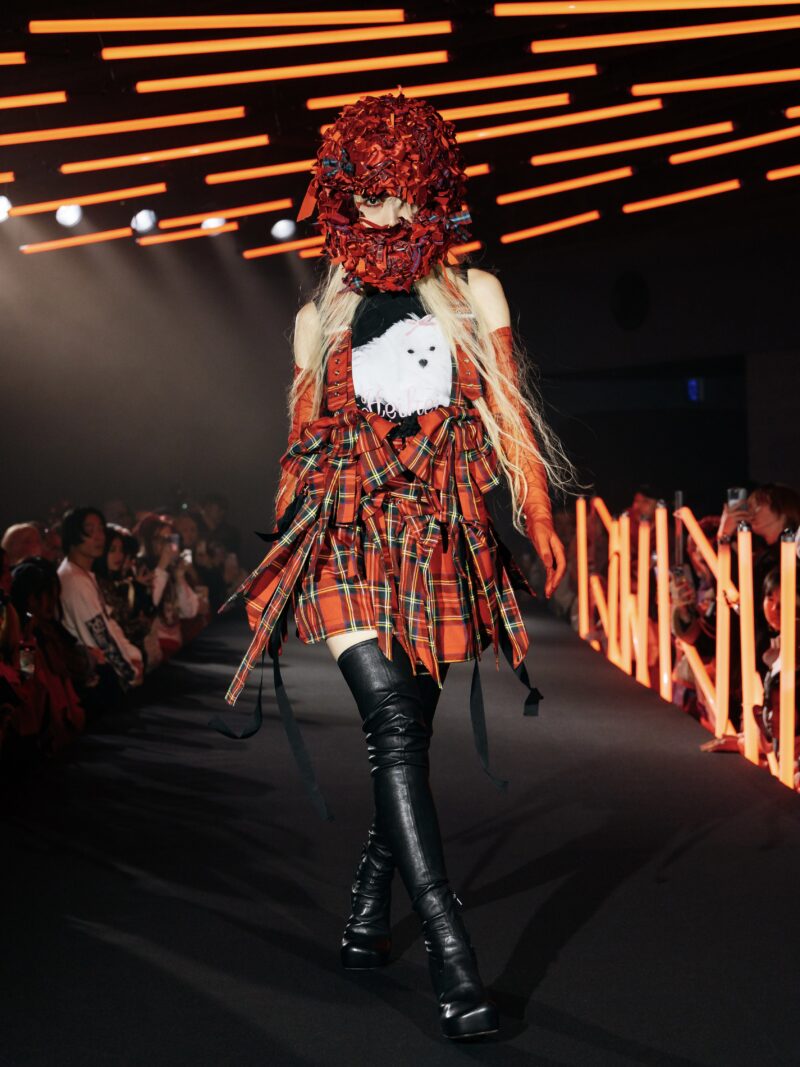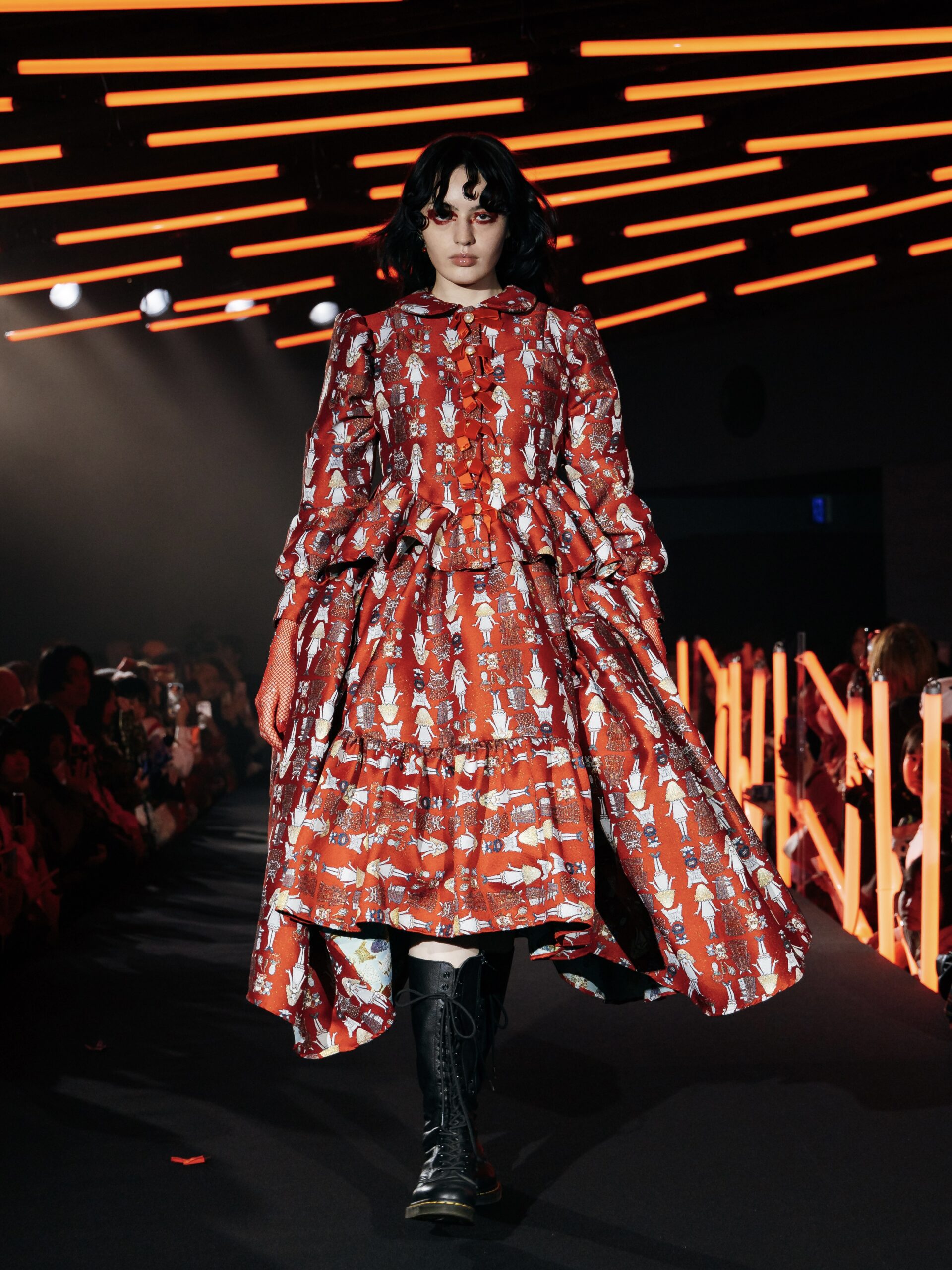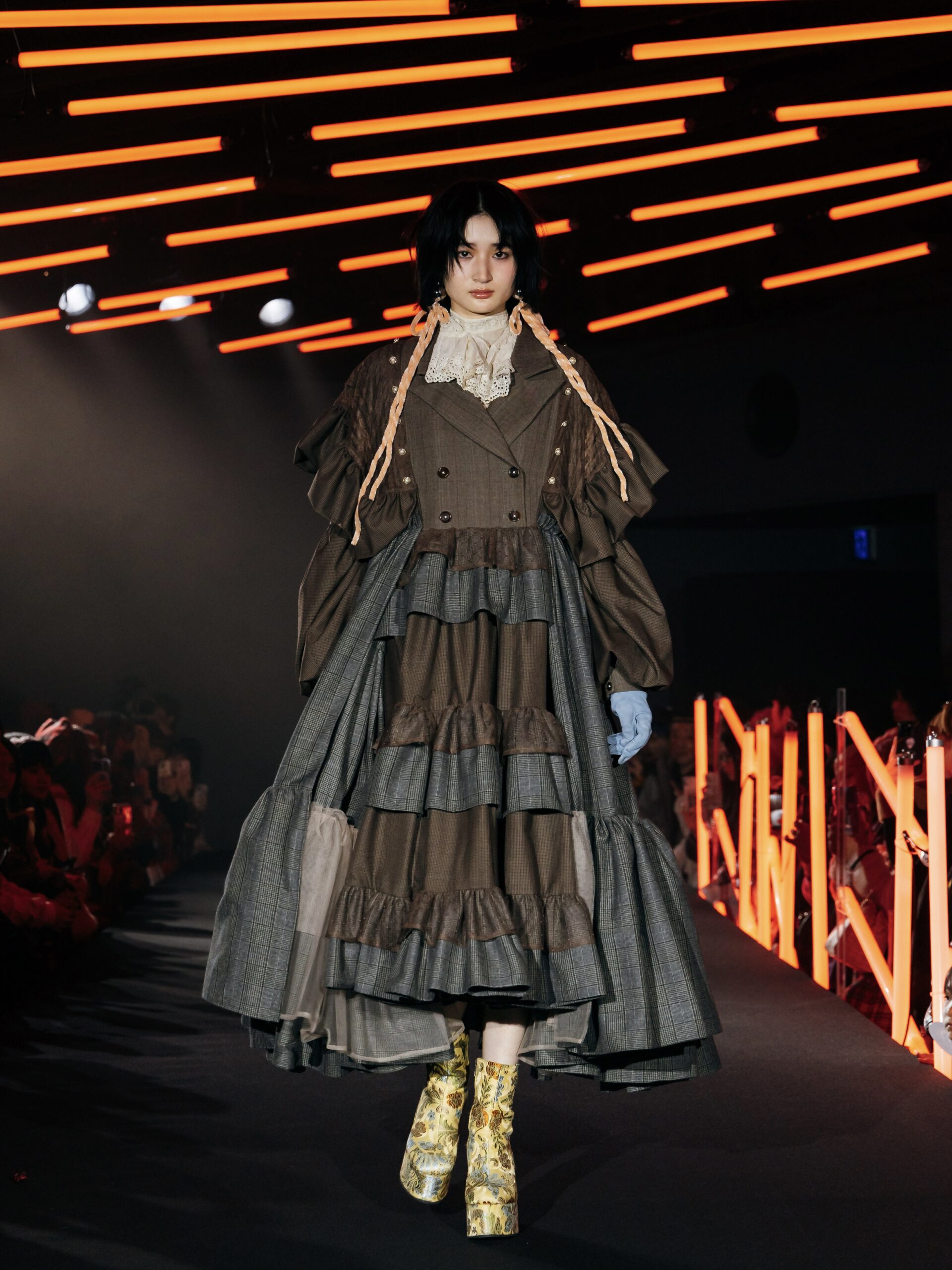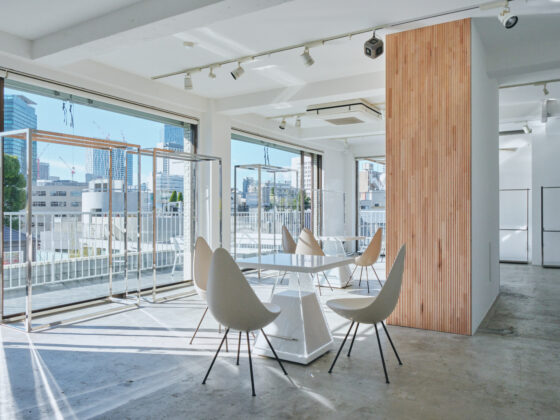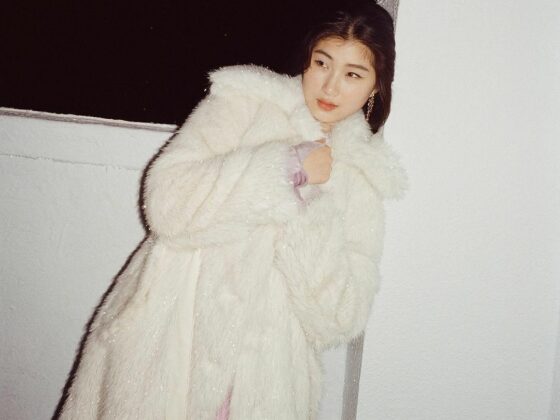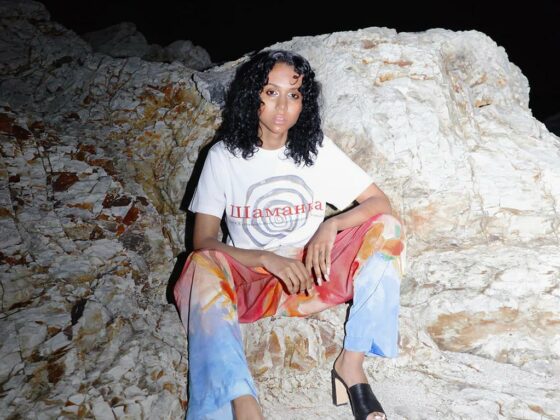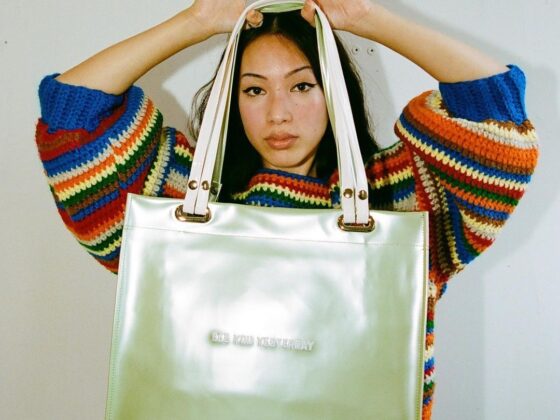When walking on the streets of Harajuku, one often sees Japanese girls wearing iconic designs – nostalgic yet contemporary clothing such as checkered dresses, sailor collars, berets etc. These attention-grabbing and memorable styles belong to the fashion designer Shohei Kato’s independent fashion brand, HEIHEI, founded after graduating from the Bunka Fashion College in Tokyo.
Having spent his entire student life in Harajuku, Shohei Kato was deeply influenced by the street culture, leading him to establish a brand with a distinctive Harajuku flavour and a strong personal style. Over the past ten years since its founding, HEIHEI has brought a unique visual impact under his direction. By blending nostalgic culture with modern taste, we witness a unique style imbued with the characteristics of Japan from the 80s to the 2000s. Even in the present day, it feels like stepping into the past old day of Japan.
This year, 2024, marks the tenth year since HEIHEI was established. To commemorate this milestone, a fashion show was held on the top floor of Laforet Harajuku. With a consistent style throughout years, it showcased the passion for Harajuku culture to the public. Despite significant changes in Harajuku culture over the past decade, Shohei Kato hopes to bring joy and make this city even more lively through the brand.
Can you give us an introduction about HEIHEI?
KATO: HEIHEI is a brand founded by a designer who spent the student days in Harajuku street. By mixing past culture with current tastes for creation, HEIHEI fully embraces the worldview of Harajuku culture and incorporates culturally distinctive features of Japan.
What driven you to create your own brand after graduated from fashion college and named as “HEIHEI”?
KATO: I was hesitate about the brand’s name, and therefore I considered various options. Ultimately, I thought a catchy phrase would be good, so I took the name ‘HEIHEI’ from my name ‘Kato Shohei, and extracting it from the character ‘平’ (hei) in the name.
How would you describe the brand in three words or in a sentence?
KATO: HARAJUKU, CULTURE, CHECK.
Where is your inspiration coming from e.g. music, arts, culture, daily life etc.? And, How do these inspirations affecting you to decide the theme of the collection?
KATO: My inspiration is deeply influenced by Japanese culture from the 80s to the 2000s. In terms of music, especially the idol culture of the 80s, it is particularly influenced by Harajuku’s street culture.
Usually, when I discover a secondhand bookstore or a record shop, I end up buying old fashion magazines and records. In the process of designing, I create a design by looking at old magazines and videos to slip back in time.
Upon returning to the present, I research current trends and anticipate future societal developments to some extent. Based on that research, the uniqueness of HEIHEI is brought out.
Can you tell us about the most consciously considered part of the design and concept?
KATO: HEIHEI consciously experiments with oversized silhouettes and a slightly relaxed fit. Furthermore, we also deeply consider to creating a voluminous feel that uplifts the mood when worn.
This year is the 10th anniversary of the brand. Have any events been organised to celebrate this significant year?
KATO: Lately, we held a fashion show to commemorate our 10th anniversary. Many fans attended the show at the museum on the top floor of Laforet Harajuku.
Through the runway, we discovered new ways to express HEIHEI and realised how wonderful it is to move people’s hearts through clothing and space. I have become interested in experiential events involving users, and I want to explore various approaches in design further in future.
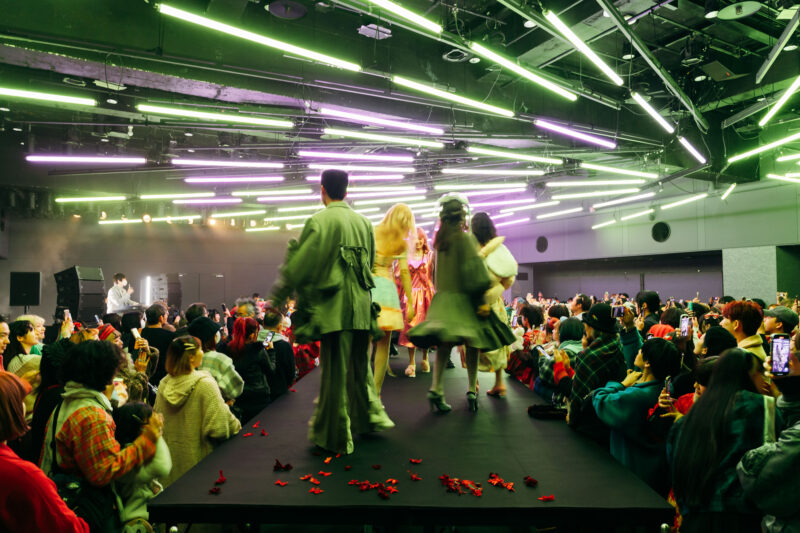
What do you think about the current environment for fashion in Japan?
KATO: The image is more refined with the taste of the 90s to 2000s, and I find it fascinating how various genres such as gal, grunge, otaku, anime, and more are mixed to create something new.
Can you tell us about the future goals and plans for HEIHEI?
KATO: We strive to continuously driven HEIHEI to become a brand that energises the city by integrating into the culture of Harajuku.
Additionally, I aspire people from overseas can get to know HEIHEI, and to develop the brand that can promote Japanese culture and have a stronger presence in overseas activities.
Do you have any advice for our readers who are looking for starting their own career or business in the fashion industry?
KATO: I believe that taking initiative is crucial. By acting with one’s own passion, various discoveries can emerge. In addition, valuing individuality is also important. Cherishing individuality may lead to a more refined understanding of the current market. It can be beneficial in business by doing so. Through fashion, I hope you can enjoy each day!
Through fashion, I hope you can enjoy each day!
Shohei Kato, Founder of HEIHEI



